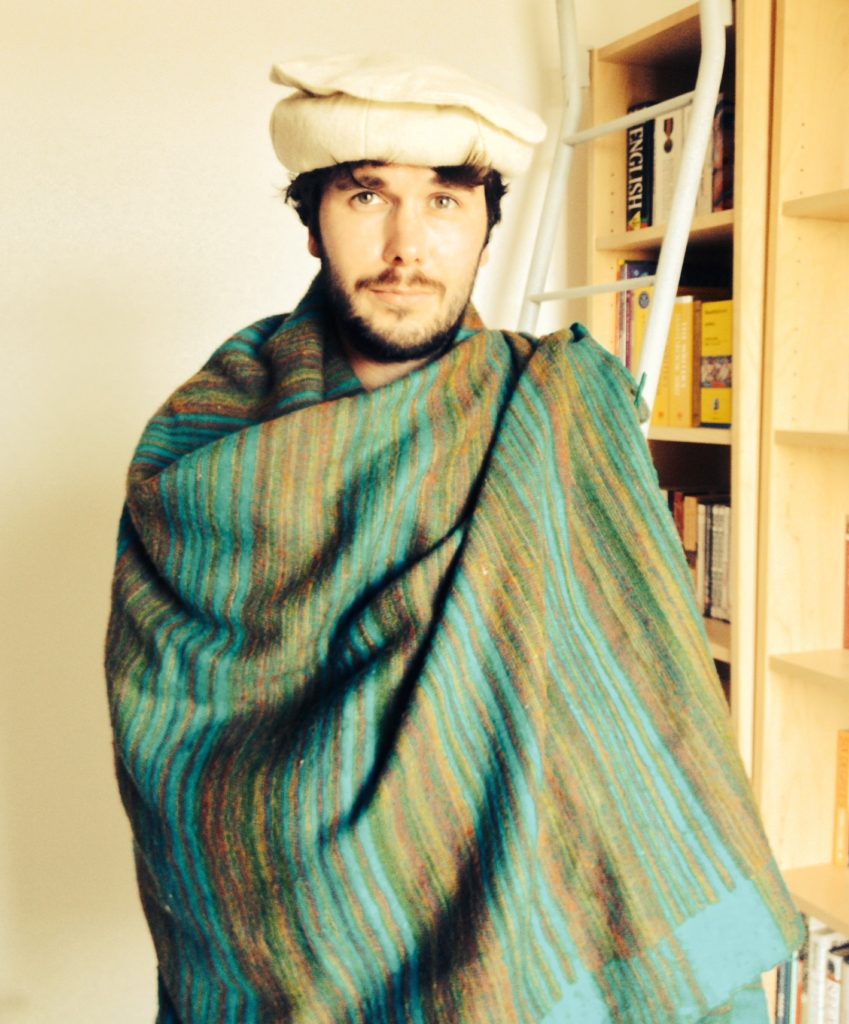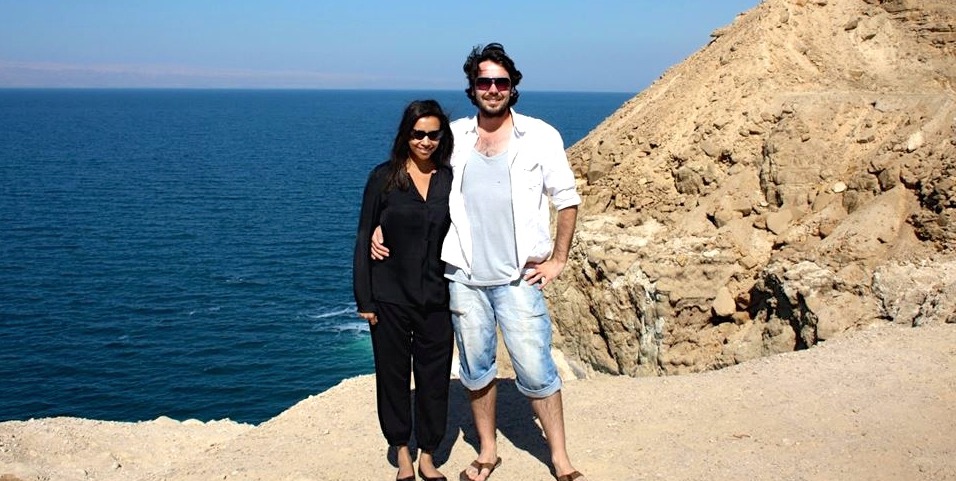More than once, I’ve shaken off Peter’s affectionate arm around my shoulder or his hand in mine: in the crowded streets of Cairo, the empty aisles of Jerash and even the markets of Whitechapel right here in London.
I think it’s fair to say that I’m more attuned to the disapproval our relationship might trigger, so while he’s innocently reaching for my hand, I’m assessing who might see us, what they might think, what they might say, what they might do.
In the early days of our relationship, I once got angry because Peter told a Bengali waiter in conversation that we were a couple. He didn’t understand that it cast aspersions on my character.
You see, Bengali girls are brought up to be loyal to their culture and, more than anything else, to be pure and chaste. In my mind, it was better to pretend that Peter and I were friends.
These days, I’m less worried about what people think but that’s easy to say when we’re comfortably ensconced in London. What about in Jordan or Egypt or Morocco or Tunisia?
Could we be so cavalier in the streets of Amman and Cairo? In those cities, I’ve been more mindful about covering up and more mindful that I was there – an Asian girl named Abdullah – with a white Norwich boy named Watson.
The first thing I learnt was that I really didn’t have to worry.
As long as I dressed modestly and we refrained from public displays of affection just like any other couple, we faced zero negativity. That said, I can’t say there hasn’t been the odd awkward situation or two.
Here are some of the things similar couples are likely to encounter abroad.
People will assume you are married
In both Egypt and Jordan, all the locals referred to Peter as my ‘husband’ – there was no question or doubt that he might not be. Nevermind the fact that I didn’t have a ring on my finger or that, after an ill-guided marriage or two, I had zero proclivity to do it all over again.
Shopkeepers, receptionists, cab drivers all spoke to me of my ‘husband’. There is little point in correcting this even if it does trample over your feminist views about the validation seldom afforded to non-married women.
In some cases, I’m sure people knew we weren’t married but were maintaining a sense of social decorum. I just smiled and nodded. It was the most gracious thing to do.
Booking under an ‘ethnic’ name may cause issues
With his dark brown hair and ever-present beard, Peter could conceivably be mistaken for a Mediterranean, but it’s unlikely that anyone would believe he’s an ‘Abdullah’ – even when he’s being silly and playing dress up.

So imagine when he tries to check into a hotel or order a drink or book some wifi or do anything under the name Abdullah.
Unless I’m with him and step forward to say, ‘Ah, that’s me’, it’s likely he’ll get anything from a raised brow to outright interrogation.
For us, this has always been more charming comedy scene than Homeland in reverse, but it’s worth bearing in mind for couples new to the scene.
You will be asked (many) personal questions
To be honest, this happens even when I’m not with Peter. Here’s what I tweeted back in 2010 on a trip to Chicago.
An Asian woman dressed as a Texan cowgirl in a Chicago bar with a British accent… Wonder if I should take a placard with an explanation.
— Kia Abdullah (@KiaAbdullah) October 15, 2010
My indeterminate brown-ness means people always want to know what I am. I’ve been asked if I’m Thai, Singaporean, Pakistani, Indian, Tunisian and twice, to my boundless joy, Brazilian. This curiosity is magnified when I’m with Peter. When he tells someone we’re from London, they usually turn to me and say ‘And you?’ Once, a Cambodian laughed in my face when I said ‘I’m from London too’.
More than my ethnicity, people in the Middle East and North Africa are interested in my religion. ‘Are you Muslim? Is your father Muslim? Your husband has converted, yes? He must convert! Do you pray? Do you fast?’ Which leads me to…
There will be super-awkward situations
I had just finished answering a barrage of questions from my cab driver on the way to Petra. Yes, my father is Muslim. Yes, I am too. Yes, I can read Arabic. Yes, I have read the Qur’an. Yes, of course I know Surah Fatiha (the Muslim equivalent of The Lord’s Prayer).
At which point he said: “You must recite it for me.”
“Um, no, no, I couldn’t,” I said, British reserve humming through my veins.
“No, no, you must.”
“No, really, I can’t – please.”
“You must. You are in our country. You must.”
Well, what was I supposed to say to that? And thus, in my childhood Arabic, I recited a butchered version of Surah Fatiha, growing more and more red with each verse.
He, like a disappointed parent with a report-card full of Cs, feigned approval and silently turned his focus back to the road. Peter patted my hand encouragingly. I just shrank into my seat.
It’ll probably be no worse than at home
It was the first wedding we were attending as a couple. Peter looked excruciatingly handsome in his grey suit and I hadn’t scrubbed up too badly either. As we walked into the traditional English church, the usher asked Peter if we was with the bride or groom, then promptly pointed out the way.
As I was about to walk past, the usher stopped me and asked the same question. “I, er, I’m with him.” I pointed to Peter. Suitably embarrassed, the usher apologised and let me on my way.
This kind of thing happens occasionally but rather than being insulted, I’m usually amused. Sure, it would be great if we were all colour-blind when it came to race but that’s just not the way of the world.
If you can accept that you and your partner are different and that people will be curious about those differences – both home and abroad – then you’ll most likely be absolutely fine travelling as an interracial couple.










